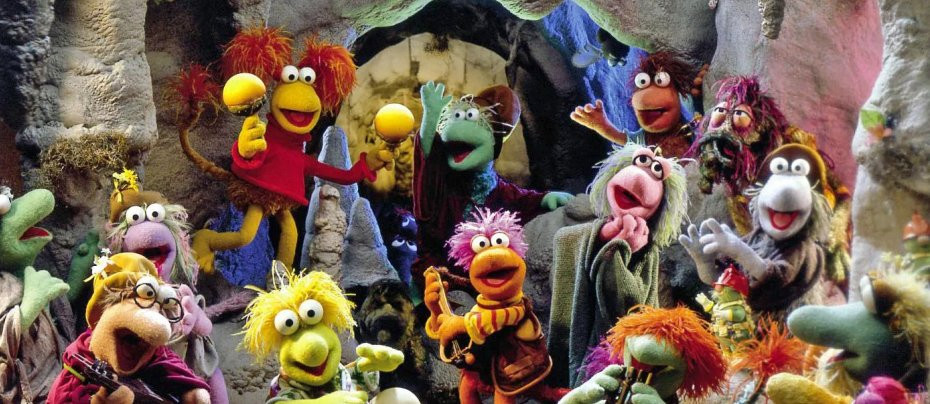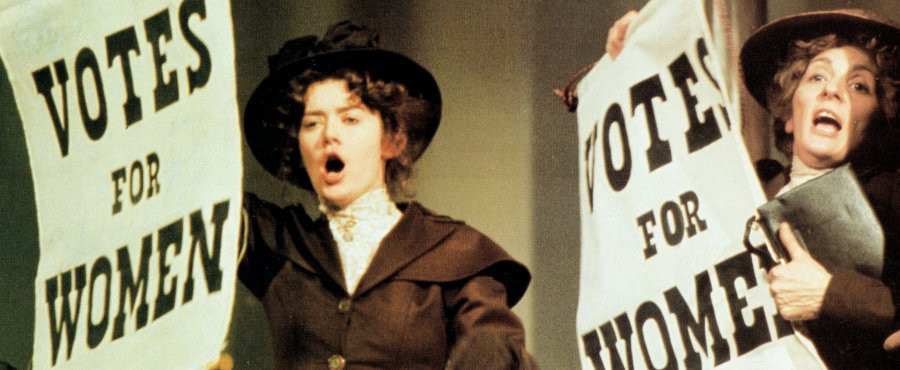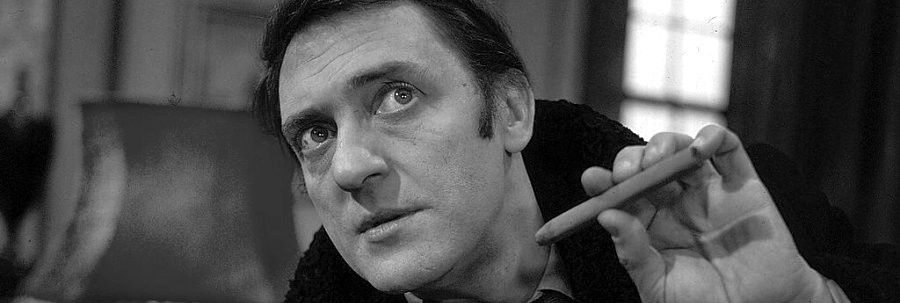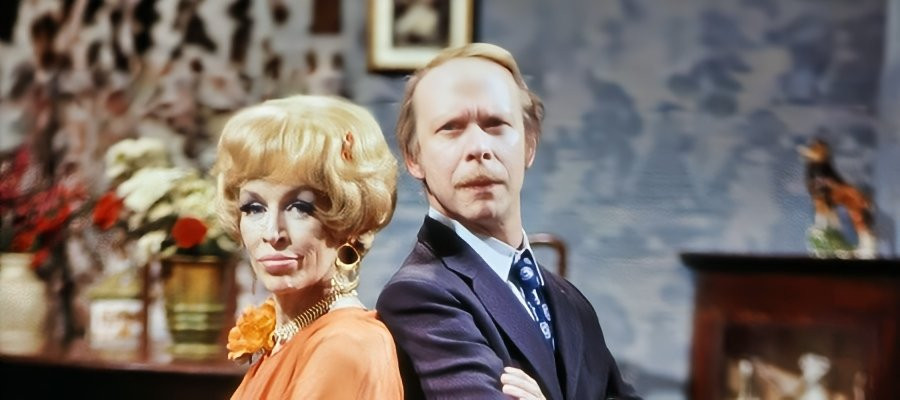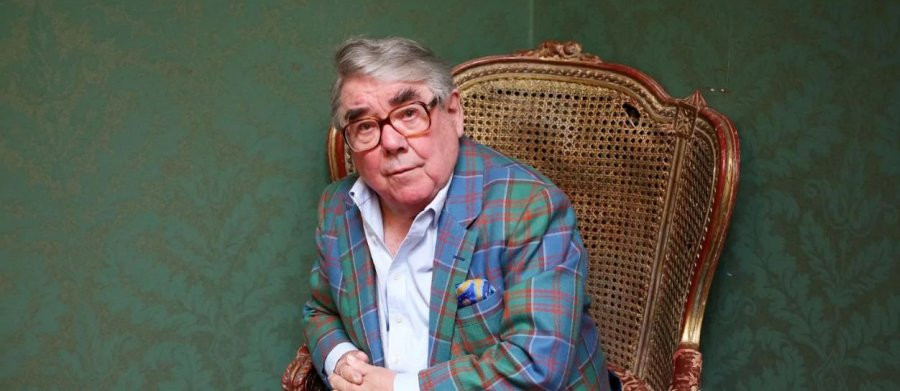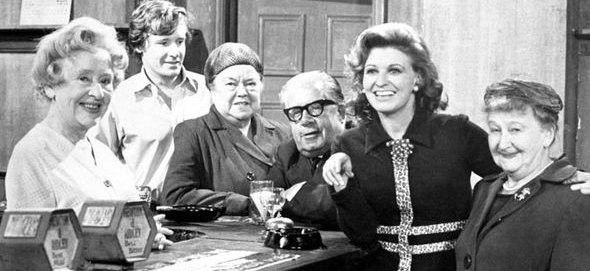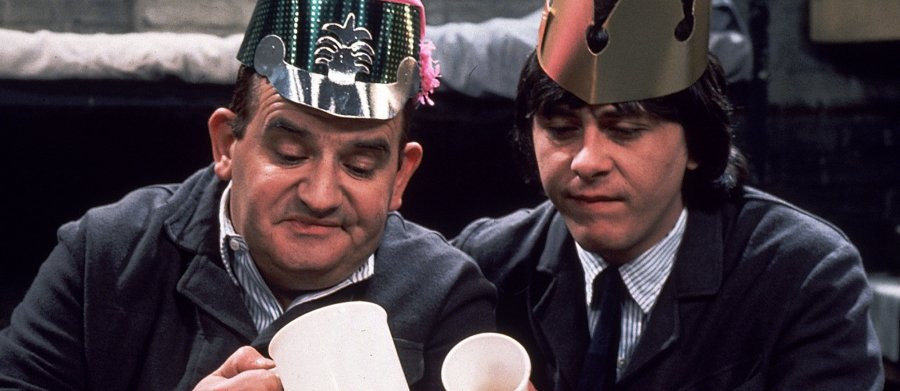
Porridge at Christmas
One of the best-loved sitcoms on the twentieth century, Porridge ran for three series between 1974 and 1977. Between its second and third series, the programme cemented its position as a televisual success with two hugely popular Christmas specials, because even in the nick, you have to mark Christmas.
Christmas specials are a tricky beast. They need to be momentous enough to warrant their “special” status and sought after place in the schedules, but not so different to their regular episodes that they lose what made the show so popular to begin with. Porridge managed to balance this equation two years in a row, with two extended episodes that saw the programme at the height of its powers.

Airing on Christmas Eve 1975, just over a month since the end of the second series, “No Way Out” took a sobering look at the realities of Christmas on the inside. As far as Fletcher (the great Ronnie Barker) is concerned, Christmas is just like any other day in prison, although even he is looking forward to slightly better than usual grub for the annual Christmas dinner. Godber (Richard Beckinsale) is more upbeat, looking forward to some Christmas cheer and even enjoying the tuneless carol singing of his fellow inmates. As Fletcher points out, the Christmas choir only exists so that it can drown out the sound of Tommy Slocombe's tunnelling, his escape attempt scheduled for Christmas Eve.
Knowing that Slocombe's plan is doomed to failure, Fletch expects Christmas to be a complete washout, as harsh prison warden Mackay (Fulton Mackay) is looking for any excuse to exercise his authority and cancel the festivities. With this in mind, Fletch plans to put himself in the infirmary, where a prisoner can put his feet up and expect a little special treatment. Fletch hobbles in to see the prison doctor, limping heavily when he remembers due to this terrible knee problem that has supposedly kept him in constant pain since he had an operation some years previously.
In a lovely bit of guest casting, the doctor is played by Graham Crowden, who gives a typical performance – as rich and fruity as a Christmas cake. The Doctor is even less forgiving than Mackay, proud to have the lowest patient admission rate in the prison system and having no time for “malingerers” like Norman Stanley Fletcher. (In a fun bit of TV trivia, Crowden and Mackay were both seriously considered for the lead role in Doctor Who when Jon Pertwee left in 1974.) The doctor is forced to accept that Fletcher's medical records bear his operation story out, so sends him for a day trip under guard to a local hospital for a swift X-ray.

It's not quite the Christmas break that Fletch had hoped for, but it's better than nothing. That is until Harry Grout, Slade Prison's king con, comes to pay him a little visit. See, he has a personal stake in getting young Slocombe out of the nick, and thinks Fletcher's day trip would be the perfect opportunity to get the chap kitted out with a fake passport. Fletch wants no part of it, but no one subjected to Peter Vaughan's threatening performance as Grouty is going to be able to say no.
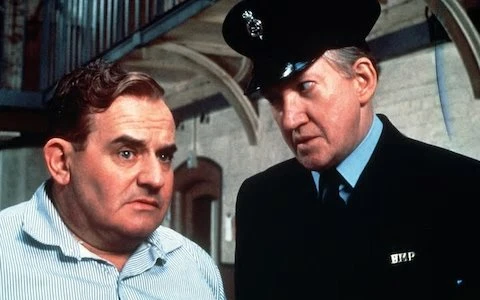
Fortunately for Fletch, his escort is soft touch warden Mr. Barraclough (Brian Wilde), who's keen to get some last minute Christmas shopping done. The pick-up goes without a hitch, which is more than can be said for Slocombe's surreptitious escape plan. The theft of Barraclough's bicycle as part of the getaway preparations doesn't help (“Green in it was,” says Barraclough, in a lovely example of a running joke calling back to the first episode). Christmas is, as feared, cancelled. Fortunately, Fletcher's legendary nous saves the day, as he comes up with a plan that will not only keep Grouty happy, but get Mackay back on side too. He even gets his break in the infirmary.
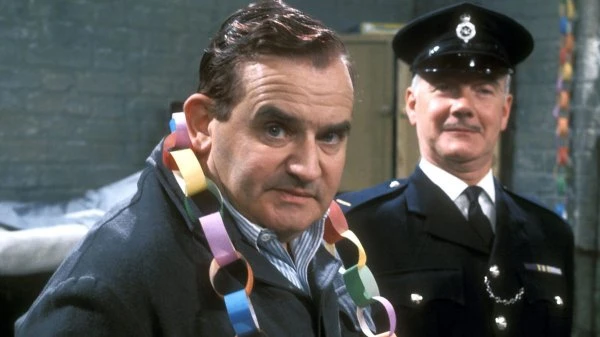
It's a more elaborate plot than usual for Porridge, one that suits the forty-five minute runtime, with a couple of fun twists as the cons and screws try their best to outwit each other. There are some golden moments in the episode that show Porridge at its very best, not least the sneaky pickpocketing of both Mackay and Barraclough as they break up the conspiratorial carolling. The best moment, though, is the final scene, where Mackay, thoroughly pleased with himself for uncovering the escape tunnel (with a little subtle help from Fletch). The ongoing rivalry between the two is the heart of the series, but there's a grudging respect between them that comes to the fore in moments like this. They both know how things work in the nick and neither wants the status quo to change. After a few celebratory drinks at the governor's sherry party, Mackay pays the invalided Fletcher a visit in the infirmary for a moment of solidarity. Mackay's performance as the drunken warden, exaggerating all of his trademark ticks just enough, is absolutely beautiful.

“No Way Out” is one of Porridge's greatest episodes, and reached record ratings for the programme. At 18.5 million viewers, it was the top rated programme for the year.
Precisely one year later, Porridge returned for its next episode, a second special to prepare the way for the third series (which aired from February 1977). In this episode, we discover the governor (Michael Barrington) is a staunch teetotaller, with a zero tolerance approach to alcohol on prison premises. Was Mackay's drinking so bad last Christmas that it led the governor to declare HMP Slade an alcohol-free zone?
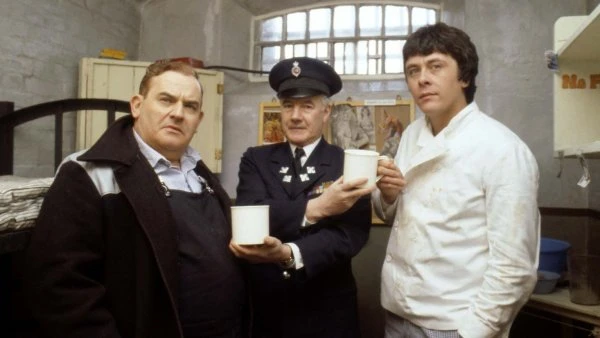
When Fletcher and Godber are discovered selling their own special home brew, they're dragged up before the governor. Unfortunately for them, it happens that the governor is trying out a new “trustee” at the very same time. Urwin, played by Dudley Sutton (best known as Tinker in Lovejoy in the eighties and nineties) has been on his best behaviour so that he can arrive in this trusted position – where he can take the governor hostage and hold him to ransom for his freedom.
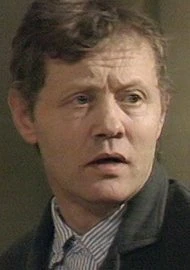
Unfortunately for Urwin, events conspire to keep the governor out of his grasp, but he does end up with Barraclough, Fletch and Godber, along with secretary Mrs Jamieson (Jane Wenham). Mackay is sent as his runner, and all he demands is a helicopter and ten thousand pounds in unmarked notes.
“The Desperate Hours” is a less festively-themed, more seriously-styled but still extremely funny episode. It turns out that Urwin has been up for psychiatric evaluation several times, but each time refused. Sutton – still dark-haired and relatively young here – gives a very sympathetic performance, portraying a man at his last ebb and clearly out of his depth, but still potentially very dangerous. Because it's Porridge, there's never any sense that anyone's in any real danger, but the tension still ratchets up at times. The jokes are never very far away, though, most of it at Barraclough's expense. Before this he was always characterised as well-meaning and a bit naïve, but here that pushes over into incompetence, particularly when he botches the hostage protocols by drugging the wrong coffee.
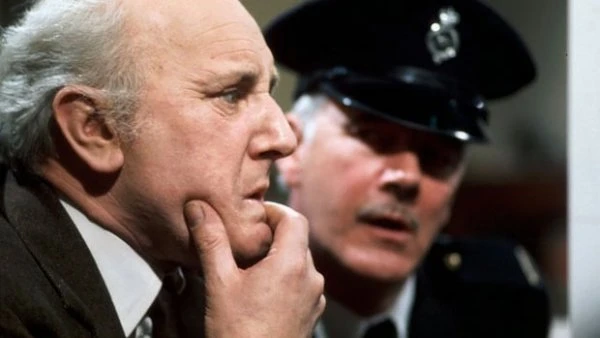
In the end, Fletch proves his worth in an act of bravery that defuses the situation. Urwin gets the treatment he needs and the illegal distillery in Fletch and Godber's cell is forgotten about. “The Desperate Hours” is an excellent episode, pushing further into drama territory than is usual for Porridge but still a great example of a classic sitcom. It just happens that the four walls confining our characters are not a cell but the governor's office. Both Christmas specials are mainstays of the BBC's Christmas schedules, repeated year after year.
About the Writer of this article, Daniel Tessier
Dan describes himself as a geek. Skinny white guy. Older than he looks. Younger than he feels. Reads, watches, plays and writes. Has been compared to the third, fourth, fifth, sixth, seventh, eighth, tenth, eleventh and twelfth Doctors, and the Dream Lord. Plus Dr. Smith from 'Lost in Space.' He has also had a short story published in Master Pieces: Misadventures in Space and Time a charity anthology about the renegade Time Lord.
Dan's web page can be here: Immaterial
Published on December 24th, 2019. Written by Daniel Tessier for Television Heaven.


